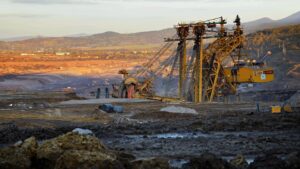Petroleum extraction is an industrial process that involves drilling into the earth to extract oil and natural gas. This process can have significant impacts on both the environment and human health. Hence, environmental regulations play a crucial role in managing petroleum extraction activities.
The Importance of Environmental Regulations
The importance of environmental regulations in petroleum extraction cannot be overstated. These regulations ensure that drilling companies comply with rules designed to protect our planet’s ecological systems while extracting its natural resources sustainably. By doing so, these rules promote environmentally responsible practices as well as assist communities to limit their environmental risks associated with this industry.
Types of Environmental Regulations
There are different types of environmental regulations governing petroleum extraction activities. Some examples include:
1) Air Quality Standards
Air quality standards are used to regulate emissions from drilling sites that could result in negative health effects such as respiratory infections or lung cancer.
2) Water Quality Standards
Water quality standards aim at protecting water sources from contamination by toxic chemicals released during the oil or gas extraction process through wastewater discharge.
3) Waste Management Standards
Waste management standards help prevent harmful waste products like fracking fluids from ending up in landfills or water sources, ultimately preventing pollution risks within surrounding areas.
Implementation of Environmental Regulations
Regulations regarding petroleum extraction require strict adherence for them to be effective towards preventing harm caused by industrial operations affecting both human health & biodiversity welfare locally/globaly! This is why governmental authorities must impose proper enforcement mechanisms including fines against violators not following mandated guidelines towards protecting public interests!
Most countries have agencies responsible for enforcing environmental regulations related to petroleum extractions such as The United States’ EPA (Environmental Protection Agency), which monitors compliance with federal laws regarding air & water quality alongside sustainability measures throughout oil-producing industries there!
Benefits of Compliance with Environmental Regulations
The benefits associated with complying with environmental regulations during petroleum extraction processes are crucial. These benefits include:
- Protection of public health
- Preservation of ecosystem biodiversity
- Reduction of environmental hazards
- Creation of a more sustainable and responsible industry
Conclusion
Environmental regulations play a critical role in managing petroleum extraction activities. The importance of these rules cannot be overstated, not only as it relates to protecting the environment but also safeguarding human health by ensuring proper waste disposal and limiting exposure to toxic pollutants. By enforcing these rules, we can create a more sustainable and responsible future for the oil and gas industry.








